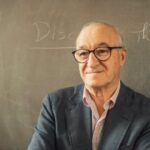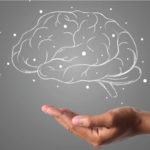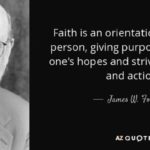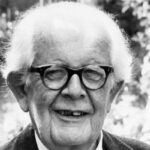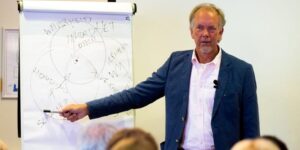Mihaly Csikszentmihalyi biography and books
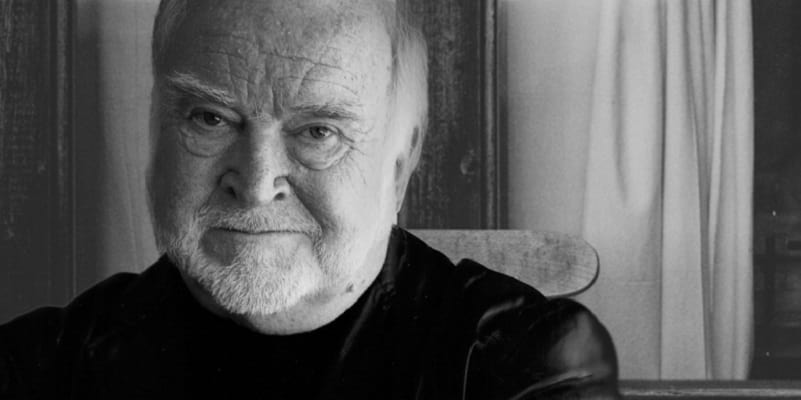
Mihaly Csikszentmihalyi (1934 – 2021) was a professor of Hungarian descent with a special interest in positive psychology. He lived in the United States since he was twenty-two and worked at the private Claremont Graduate University as a professor and researcher. Most people know Mihaly Csikszentmihalyi from the Flow Theory.
Mihaly Csikszentmihalyi biography
Mihaly obtained both his Bachelor’s degree (BSc.) and his doctorate (Ph.D.) from the University of Chicago.
In his scientific years, he became known for his research into happiness and creativity. Years of research and study around the flow theory have gained Mihaly Csikszentmihalyi recognition and produced many publications.
He is regarded as the leading researcher in the area of research within positive psychology. Mihaly Csikszentmihalyi’s works are influential and are cited and used internationally.
Flow Theory
In his ground-breaking work the Flow Theory, the psychology of the optimal experience, he describes that people are happiest when they are in a state of flow.
This is a state of mind in which people are so involved in an activity that nothing else seems to matter. In order to achieve flow there must be a balance between the challenge of the task or activity and the skills of the performer.
Flow is a form of goal-oriented attention and can be found in meditation, yoga and martial arts. Flow contributes towards improvement of personal ability according to Mihaly.
Famous quotes
- “Happiness is not something that happens. It is not the result of good fortune or random chance. It is not something that money can buy or power command. It does not depend on outside events, but, rather, on how we interpret them.”
- “The best moments usually occur when a person’s body or mind is stretched to its limits in a voluntary effort to accomplish something difficult and worthwhile….For each person there are thousands of opportunities, challenges to expand ourselves.”
- “It is possible to experience a feeling of control unless one is willing to give up the safety of protective routines.”
- “It is not skills we actually have that determine how we feel, but the ones we think we have.”
- “It is not the hearing that improves life, but the listening.”
- “Great thinkers have always been motivated by the enjoyment of thinking rather than by the material rewards that could be gained by it.”
- “Entering any relationship entails a transformation of the self.”
- “It is in the company of friends that we can most clearly experience the freedom of the self and learn who we really are.”
- “To be distracted against one’s will is the surest sign that one is not in control.”
- “External supports by themselves are not that effective in mitigating stress. They tend to help only those who can help themselves.”
- “Control of consciousness determines the quality of life.”
- “…success, like happiness, cannot be pursued; it must ensue…as the unintended side-effect of one’s personal dedication to a course greater than oneself.”
- “Few things are sadder than encountering a person who knows exactly what he should do, yet cannot muster enough energy to do it.”
Books, journals and articles by Mihaly Csikszentmihalyi et al.
- 2021. Living well by “flowing’well: The indirect effect of autotelic personality on well-being through flow experience. The Journal of Positive Psychology, 16(3), 310-321.
- 2021. Trauma and well-being in Colombian disaster contexts: Effects of religious coping, forgivingness, and hope. The Journal of Positive Psychology, 16(1), 82-93.
- 2021. Flow: A Component of the Good Life. Positive Psychology: An International Perspective, 193.
- 2020. Beyond challenge-seeking and skill-building: Toward the lifespan developmental perspective on flow theory. The Journal of Positive Psychology, 15(2), 171-182.
- 2020. Flow among introverts and extraverts in solitary and social activities. Personality and Individual Differences, 167, 110197.
- 2020. All You Need Is Love: The Importance of Partner and Family Relations to Highly Creative Individuals’ Well‐Being and Success. The Journal of Creative Behavior, 54(1), 100-114.
- 2020. Facilitating or foiling flow: the role of momentary perceptions of feedback. The Journal of Positive Psychology, 15(2), 208-219.
- 2020. How experiencing autonomy contributes to a good life. The Journal of Positive Psychology, 1-12.
- 2020. Reconsidering the experience machine: Self-reported versus objective measures of physical activity to increase positive affect. Journal of health psychology, 25(13-14), 2428-2439.
- 2019. Beyond-personal love–Experiencing love beyond the person. The Journal of Positive Psychology, 14(6), 789-798.
- 2019. Why Researches of Professional and Eminent Creators’ Self Beliefs Need Social Context. In The Palgrave Handbook of Social Creativity Research (pp. 585-593). Palgrave Macmillan, Cham.
- 2018. Teamwork and flow proneness mitigate the negative effect of excess challenge on flow state. The Journal of Positive Psychology, 13(3), 284-289.
- 2018. Flow theory: Optimizing elite performance in the creative realm.
- 2018. Flow, altered states of consciousness, and human evolution. Journal of Consciousness Studies, 25(11-12), 102-114.
- 2017. Running flow. Human Kinetics.
- 2014. Flow and the Foundations of Positive Psychology. Springer.
- 2013, 1996. Creativity: Flow and the Psychology of Discovery and Invention. Harper Perennial.
- 2008, 1990. Flow: The Psychology of Optimal Experience. Harper and Row.
- 2006. Studyguide for Flow: The Psychology of Optimal Experience. Cram101.
- 2004. Good Business: Leadership, Flow, and the Making of Meaning. Basic Books.
- 2003. Creativity and Development. Oxford University Press Inc.
- 2002. Good Work: When Excellence and Ethics Meet. Basic Books.
- 2000, 1975. Beyond Boredom and Anxiety: Experiencing Flow in Work and Play. Jossey-Bass.
- 1999. Flow in Sports: The Keys to Optimal Experiences and Performances. Human Kinetics Publishers.
- 1998. Finding Flow: The Psychology of Engagement With Everyday Life. Basic Books.
- 1996. Talented Teenagers: the Roots of Success and Failure. Cambridge University Press.
- 1994. The Evolving Self. Harper Perennial.
- 1988. Optimal Experience: Psychological studies of flow in consciousness. Cambridge University Press.
- 1981. The Meaning of Things: Domestic Symbols and the Self. Cambridge University Press.
- 1978. Intrinsic Rewards and Emergent Motivation in The Hidden Costs of Reward, New Perspectives on the Psychology of Human Motivation eds Lepper, Mark R; Greene, David, Erlbaum: Hillsdale: NY 205-216.
How to cite this article:
Van Vliet, V. (2012). Mihaly Csikszentmihalyi. Retrieved [insert date] from Toolshero: https://www.toolshero.com/toolsheroes/mihaly-csikszentmihalyi/
Original publication date: 07/21/2012 | Last update: 08/15/2023
Add a link to this page on your website:
<a href=”https://www.toolshero.com/toolsheroes/mihaly-csikszentmihalyi/”>Toolshero: Mihaly Csikszentmihalyi</a>


